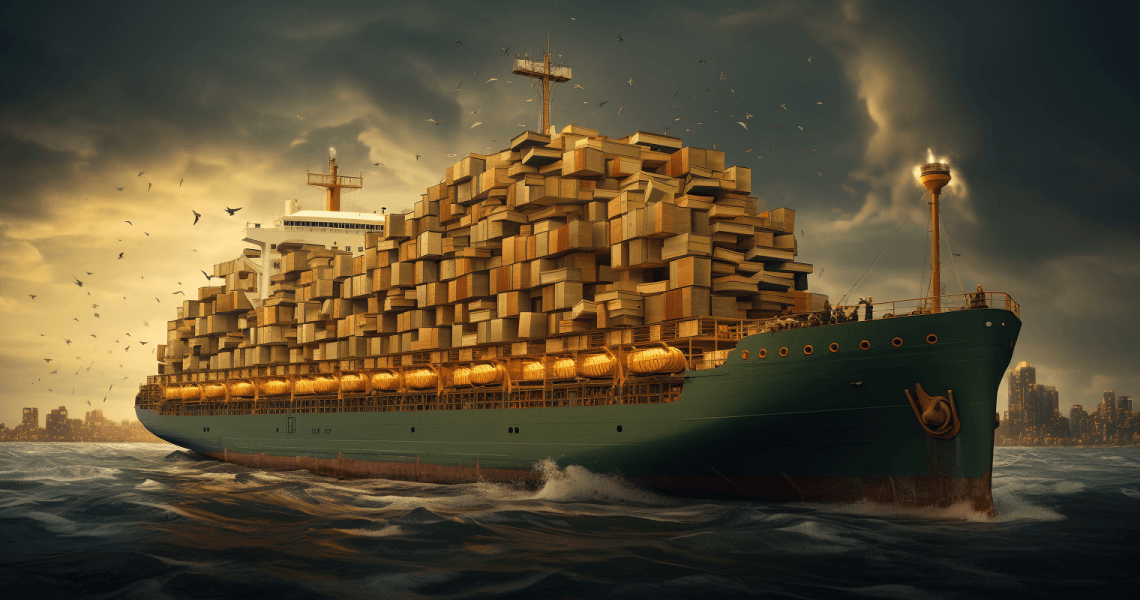The MV Logos Hope is a passenger ship built in 1973 and currently sailing under the flag of Malta with a floating library has arrived in Mombasa.
In our ever-evolving world, even the most traditional concepts are discovering new ways to remain relevant. The recent arrival of the MV Logos Hope in Mombasa, the world’s largest floating book library, exemplifies this trend.
This extraordinary vessel, which redefines the concept of a stationary library by embarking on a global adventure, is not only revolutionizing our perception of literature but also catalyzing innovation within the real estate sector.
Kenyan book enthusiasts are now gearing up for a 45-day extravaganza as the MV Logos Hope docks in Mombasa. Operated by the German-based non-profit organization GBA Ships, this 132-meter-long floating library, with approximately 350 individuals on board, marks its return to Kenya after 18 years.
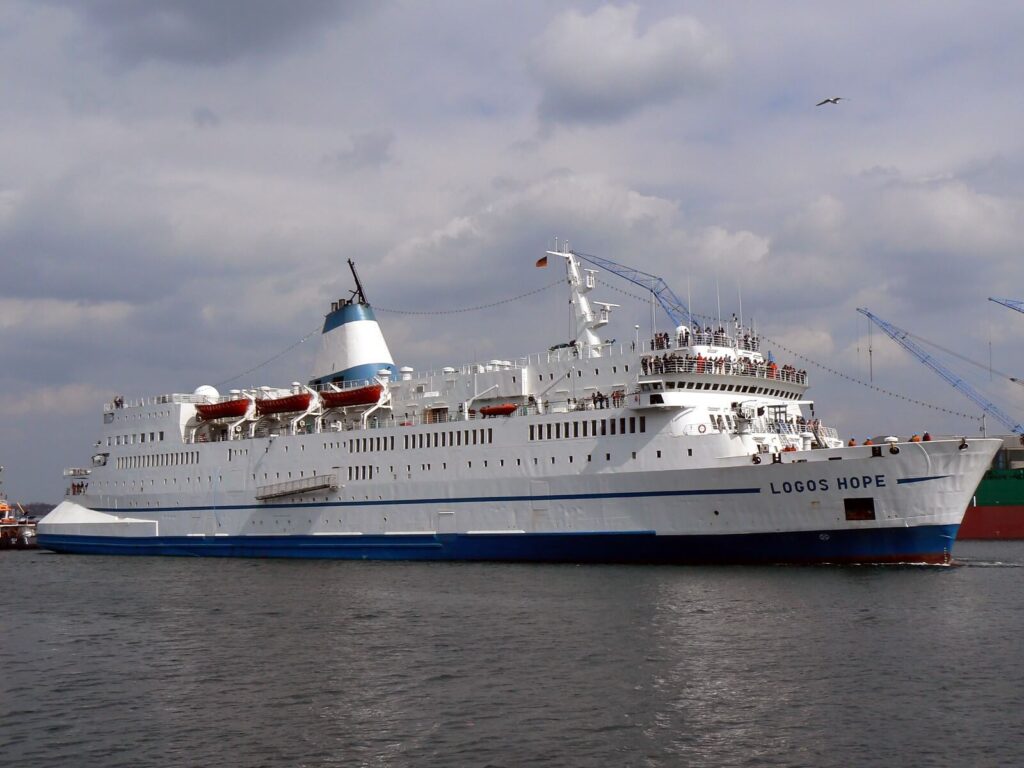
Beyond offering access to over 5,000 books spanning various topics, the MV Logos Hope presents an international café, a panoramic visitors’ deck, and more. This remarkable visit is the result of a collaborative effort involving key players such as the Kenya Ports Authority (KPA), Inchcape, the Mombasa County government, and the Kenya Tourism Board, highlighting Kenya’s burgeoning reputation as a maritime destination, especially as the nation continues to attract numerous cruise ships in recent times.
Table of Contents
A Floating Book Library Travels the Globe
The MV Logos Hope is rewriting the rules of how a book library should operate. While traditional libraries often occupy a fixed location, this floating marvel has set sail to dock in over 70 countries, bringing the joy of reading and learning directly to people all over the world. Mombasa, with its coastal charm, is just one of its many stops.

But the impact of MV Logos Hope doesn’t stop at promoting literacy. It’s also inspiring a fresh perspective on real estate ventures in Mombasa and beyond.
Alternative Real Estate Ventures
In the past, businesses and ventures in Mombasa and around the world typically required physical land-based spaces, leading to high costs and limited flexibility. However, Mombasa’s real estate landscape is evolving as alternative ventures rise to prominence.
This shift mirrors a global trend, where entrepreneurs are rethinking traditional property dependencies. Mombasa, with its coastal charm, exemplifies this transformation as it explores innovative, waterborne solutions. The arrival of MV Logos Hope in Mombasa underscores this changing mindset. It demonstrates that even established concepts, like a floating book library, can challenge conventional real estate notions.
In this dynamic environment, entrepreneurs are discovering that they can venture beyond land-based limitations, embracing new possibilities in the open water.
Here are some examples of businesses that have embraced alternative methods of construction:
Floating Restaurants
Mombasa’s seaside location has led to a new cool trend – floating restaurants. These creative spots use the ocean’s beauty and the coastal vibe to make dining special, breaking the idea that restaurants need to be on solid ground. Some of Mombasa’s famous floating restaurants include:
The Moorings Restaurant
On the calm waters of Mtwapa Creek, The Moorings stands as one of East Africa’s unique floating restaurant. With a capacity for up to 100 guests, it’s a seafood paradise, offering fish, lobster, crab, prawns, and land-based favorites like steak, chicken, and pasta.
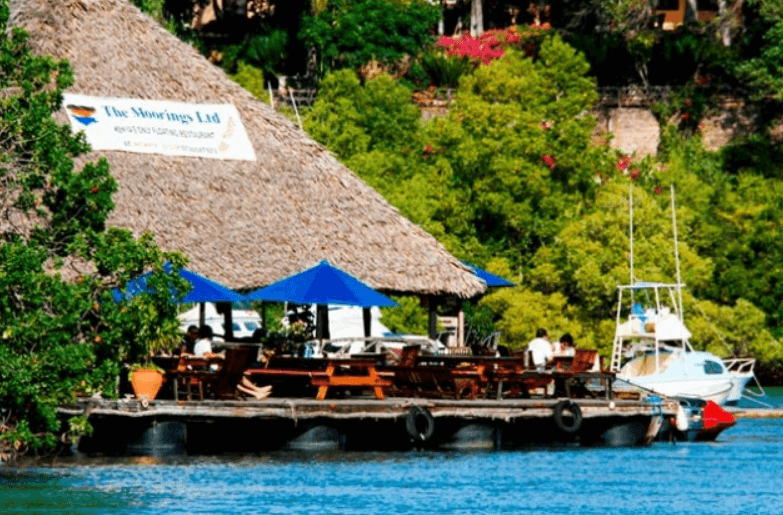
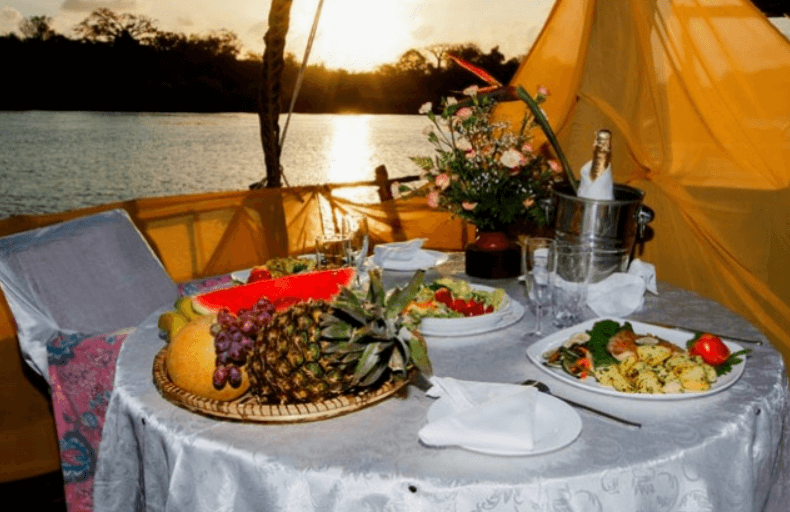
Whether you dine on a dhow or inside the floating restaurant, you’ll savor the serene atmosphere and outstanding traditional cuisine – a natural, peaceful, and delicious retreat.
The Lamu Floating Bar & Restaurant
Tucked within the culturally rich Lamu island, this unique floating spot charms visitors with its inviting atmosphere, situated just a kilometer from Shela and Lamu towns. More than just a restaurant, it hosts events, meetings, parties, and weddings, and offers outside catering, making it a versatile choice for various occasions.
These floating restaurants in Mombasa, Mtwapa, and Lamu embody the city’s innovative spirit, offering a peek into the future of real estate and hospitality. They not only capture the coastal allure but also hint at the exciting evolution of dining and entertainment in this dynamic region.
This trend is not limited to Mombasa but is also found in Nairobi.
Stedmark Restaurant in Karen
Stedmark Gardens and Hotel is a unique gem in Nairobi. Nestled in a serene setting near the Bomas of Kenya, it offers a distinctive combination of features all in one place, including an Animal Park, Floating Restaurants, and a Heated Indoor Pool.

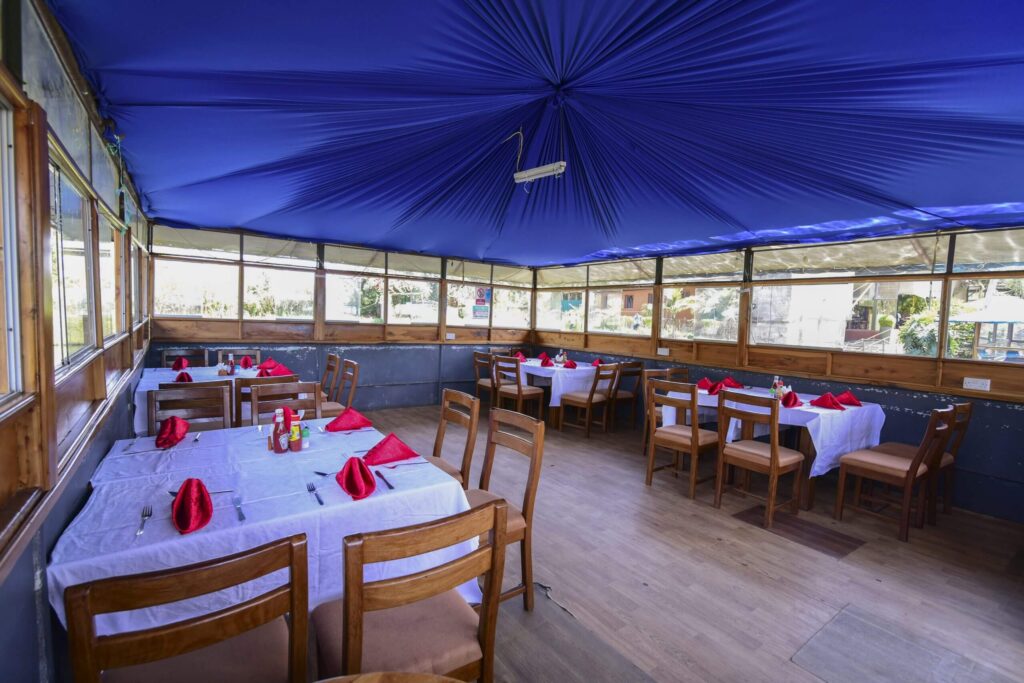
Houseboats
A houseboat is a specially designed or adapted boat primarily for living in. While many houseboats are stationary and tethered to land for utilities, some can operate independently under their own power.
Houseboats are gaining popularity among those looking for a unique lifestyle. These floating homes offer the experience of waking up to the gentle ocean sway and breathtaking sunrises, all while minimizing the need for traditional land-based properties.
READ ALSO: How to Start an Airbnb Business in Kenya and Make Money
Floating Markets
In a nod to the MV Logos Hope’s theme, floating markets are emerging in various parts of Mombasa. Vendors are taking their businesses to the water, offering everything from fresh produce to handicrafts, creating a dynamic and vibrant marketplace.
Water-Based Recreation Centers
From floating yoga studios to aqua gyms, entrepreneurs are finding creative ways to provide recreational services on the water. These ventures not only offer a unique experience but also support a healthier lifestyle.
Floating Co-Working Spaces
In the age of remote work, floating co-working spaces are gaining traction. Entrepreneurs can embrace and invest in this. Professionals can enjoy the tranquility of the ocean while staying productive, challenging the traditional office space concept.
The arrival of MV Logos Hope in Mombasa is a testament to how innovation can reshape even the most traditional concepts. As we witness the evolution of alternative real estate ventures in this coastal town, it’s clear that the boundaries of what’s possible are expanding. In a world where the horizon extends far beyond the land, Mombasa is proving that creativity knows no bounds when it comes to reimagining the real estate landscape.
These alternative ventures not only enrich the lifestyle of Mombasa’s residents but also present exciting opportunities for investors and entrepreneurs looking to make a splash in the real estate market, quite literally.
READ ALSO: How to Identify Real Estate Investment Opportunities
